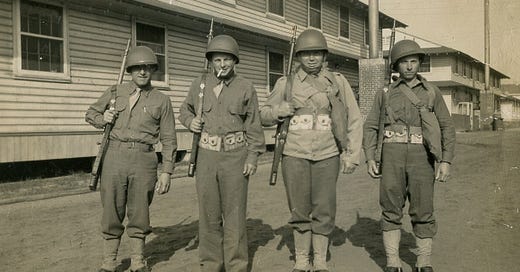FINNS: An Oral History of Finnish-Americans in New Hampshire’s Monadnock Region
Excerpted from FINNS: An Oral History... by Patricia Kangas Ktistes, 1997, all rights reserved.
David Kangas
When I was a kid, I had a hard time finding anything out about life in Finland because my parents didn’t want to talk about it. The exception was when anything about the 1939-40 Finnish war against the Russians came up. My grandfather’s brother went back to Finland and his son fought in the Finnish civil war. Another relative was wounded by a landmine. But my cousin in Finland who I write to: his wife’s family lost terribly. I think her father and two brothers died in Karelia in the Winter War, when the Finns were abandoned by everyone. One of the most famous U.S. Army Special Forces soldiers of all time was a Finn, Larry Thorne. He led commandos behind Russian lines during the Winter War and ran incredible missions destroying Russian supply depots and railroads. Later he emigrated and was involved in secret missions in Vietnam interdicting the Ho Chi Minh trail. Thorne was so high on the Russian hate list, they gave North Vietnam instructions to have him turned over to Russia should he be captured, but he disappeared when his helicopter was shot down. In the Finns’ eyes during World War II, the German Army was road-bound, poorly disciplined, and far too dependent on technology. A German officer accompanying a Finnish patrol was amazed the moment the patrol stopped, Finnish soldiers were nowhere to be seen. They took cover in hidden positions without orders. Many of the Finns’ observations about Germans were ones I could have made about the U.S. Army 35 years later when I enlisted at age 17. Instinctively I seemed to grasp the art of stealth and stamina, which make for a good soldier. I wasn’t large but could carry 100 pounds for interminable distances where many of my comrades were exhausted. Most American soldiers at that time did not seem to have the knack or interest in the basics of soldiering. Everything had to be spelled out in great detail. I was quickly promoted to sergeant. I periodically ran into other soldiers with a Finnish-American background. All seemed to enjoy successful military careers, yet we unanimously detested the bureaucracy for which the Army is famous. Was it genetic or was it just plain sisu, that intangible Finn concept? I do not know.




Thank you David for your service. I visited the memorial site for the Winter War in Finland, I have great respect for the Finnish soldiers. The Ukrainians have the same stamina and courage now as the Finns did in 1939. In 1972 I had the privilege of a one on one conversation with Moshe Dayan. He told me that the Israelis used Finnish tactics in the 1967 War.